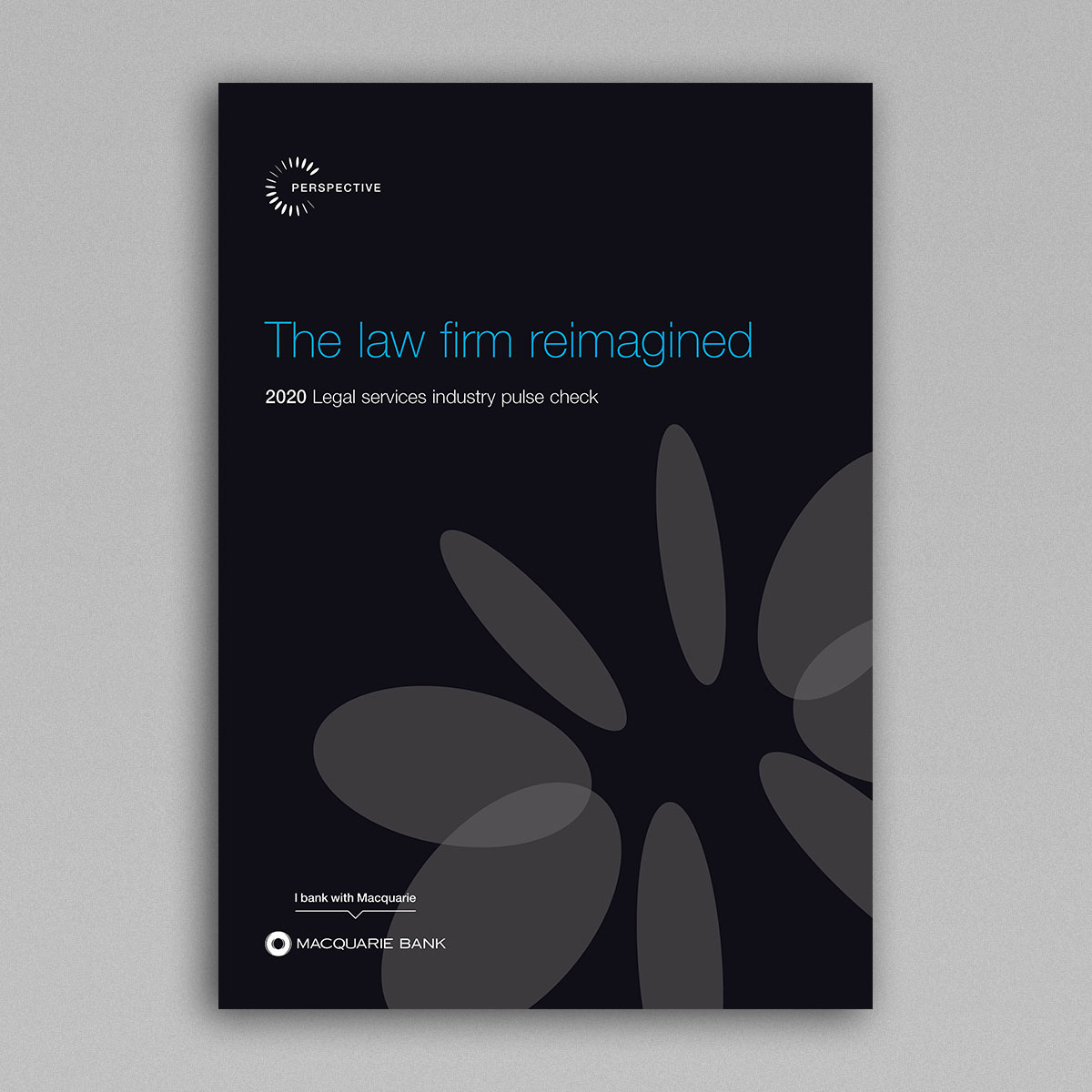How to keep up with the trends
With more than 30 years’ experience advising professional services firms, including managing partner roles at PwC and Coopers & Lybrand, Dr Stephen Moss is an industry veteran. An adviser to both Freehills and Clayton Utz when those firms nationalised, he was also one of four founding investors in AdventBalance, and is Chairman of NewLaw technology firm Crowd & Co.
Moss founded Eaton Capital Partners (ECP) in 2007 to meet the growing demand from legal services firms for strategic advice in an increasingly internationalised market. (He was also looking “to have a more balanced life”, but is quick to add: “it's not working.”)
In 2015, he was joined by Justin Whealing, a former editor of Lawyers Weekly, now ECP’s Head of Legal Services. We asked Moss and Whealing to share their perspective on the challenges and opportunities of a sector in transition.
The trends transforming legal services
Moss and Whealing say several key trends have converged to transform legal services in recent years – and will continue to shape the industry in the future.
The first and most obvious is internationalisation. “From around 2000 to 2010, the big change in the Australian legal market was from the top down,” says Whealing. Big global law firms coming into Australia, firms like DLA Piper, Norton Rose Fulbright, Clifford Chance, Allen & Overy – really big well-regarded firms.”
Local firms responded either by allying themselves to established international players, or by honing their Australian service proposition. But soon new competitive threats were beginning to emerge.
“In the last five years, the change has been from the bottom up,” says Whealing. “Technology is driving change, with legal start-ups challenging large law firms because they can offer a cheaper service, either with contract lawyers or just better infrastructure.”
These two interlinked trends – technological innovation and alternative business models – have been compounded by a fourth driver of change: increasingly demanding and price-sensitive clients.
“The sophistication of the buyer of legal services has grown substantially in the last 10 years,” says Moss. “The client now demands service quality – not only really good legal work, but also a firm that looks after the vision and the needs of their clients, rather than just supplying a service.”
Together, these trends have changed the way all firms practice law, especially those in the top tier.
“The technological-based law firms are absolutely changing the way BigLaw looks at how it rolls out it service to clients,” says Whealing. “They've forced law firms to look at their structure from the top down – leverage ratios, technology, flexible work, every aspect of their practice.”
And Moss says firms should be ready for more change. “The extent of the innovation that’s underway is simply amazing,” he says. ”Not in 10 or 15 years – it’s happening now.”
“Managing partners need to ready for that change, they need to be working to understand it now.”
The firm of the future takes shape
Moss and Whealing believe the firm of the future is likely to be more specialised, competing on quality not price, with leaner staffing models and reduced leverage ratios underpinned by cutting-edge technology.
Whealing says greater specialisation is likely to be driven by the need for both efficiency and enhanced pricing power. “Specialist firms in their chosen practice areas can charge rates at a premium, knowing that they're seen as the experts in that area. For the full-service firm trying to have 20 different practice areas, it's hard to maintain high rates,” he says.
Moss believes this trend to specialisation will be accompanied by further innovation in business and charging models. “Why work for billable hours? Why not work for outcomes? [General Counsels] don't want to know about the hours you’ve spent – they want to know about the outcome you’ve achieved.”
Enhanced efficiency is also likely to see staffing models evolve, particularly as technology reduces demand for junior lawyers. “The long-term trend is towards lower leverage ratios,” says Whealing. “Ten years ago, you probably had five lawyers for every partner. By 2020 it'll probably be closer to two or three lawyers for every partner, so partners can't just be work winners. They've also got to still be on the tools in a very practical way.”
Instead, a smaller number of legal specialists will use technologies like artificial intelligence (AI) to increase productivity and leverage their expertise. However, Moss says that while AI will change the way law is practiced, it can never replace the human element, especially when it comes to critical, “bet the farm” advice.
“It all comes down to the trust a client has in their partner. That can't be created by a machine or a blockchain – it's got to be done face-to-face,” says Moss. For that reason, the most successful firms will be those who focus on nurturing their people and building a high-performance culture.
“A managing partner's job is, I think, only to care for their partners,” says Moss. “The numbers, the billable hours – all of that has to happen, but the essence is really about understanding and supporting their people. That’s what makes a great firm in my view.”
Five steps to adapting to market in transition
1. Embrace innovation.
Be open to change, so you can flourish within the emerging market framework. And be responsive — if revenue or profit margins are dropping, look to do something about it immediately, because it won't just go away.
2. Put people and culture first.
Law firms are only as good as the people who work in them, so you need to create a performance culture that rewards quality. Go beyond traditional management techniques and take the time to really understand what people want.
3. Nurture leaders.
Find strong leaders who understand that law is the business of people, not just numbers, and who are willing to pursue innovation.
4. Be targeted.
Work out the areas you want to target and go about it in a very serious methodical way. Don't spread yourself too thin by striving to be a generalist.
5. Harness technology to support your strategy.
Technological change is set to transform the way we practice law — but technology needs to be at the service of strategy, not the other way around.



